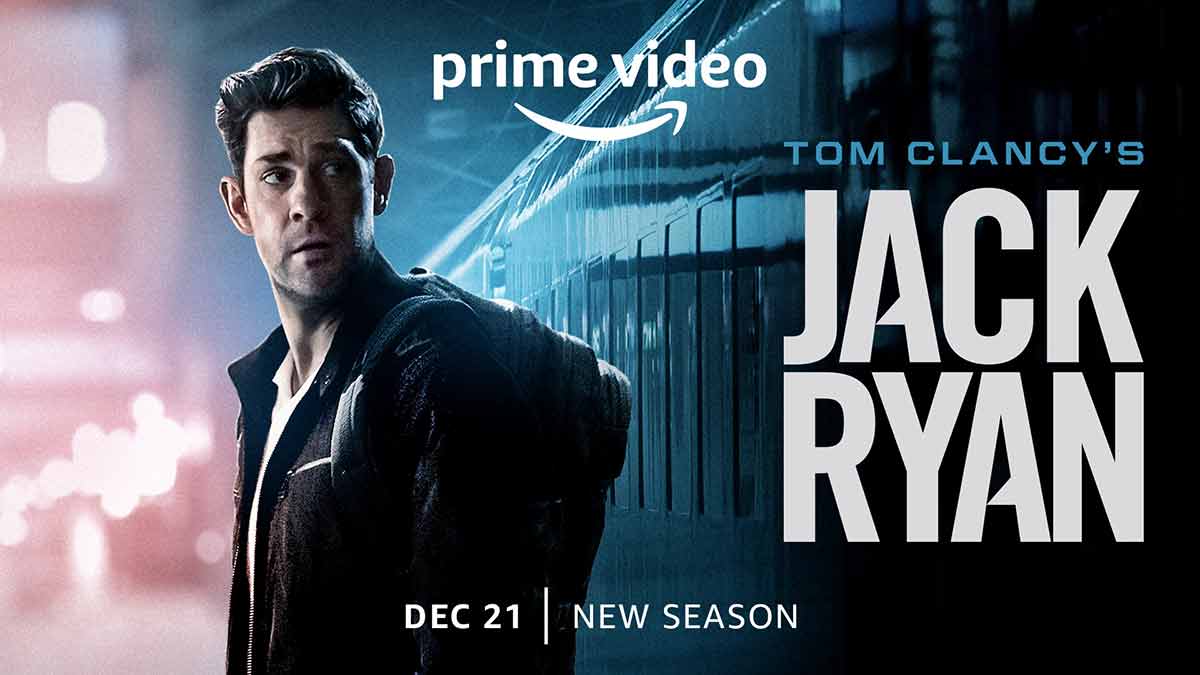
Like a lot of shows returning this year after a longer-than-originally-planned hiatus,Tom Clancy’s Jack Ryan Season 3 suffers a bit in that it must reestablish itself and remind viewers of its quality, and why you should care about its characters and the way they’ve evolved since we last saw them. Jack Ryan (John Krasinski, The Office) is a beloved character, created by Tom Clancy, and he’s been portrayed by some phenomenal actors in the past, but most would agree that Krasinski continues the tradition admirably. It’s his performance in the role that in the end makes the show work and brings viewers back despite its long absence and the wide range of alternatives available for consumption.
The truth about the majority of CIA and terrorist-related stories is that they are all going to be a bit redundant to a certain degree. Someone is always looking to blow something up, steal something, or start a war, and the countries and organizations that those threats arise from are typically recycled every few years. This season, that threat comes from Russia, which sadly parallels the real-life conflict occurring as it airs today. Obviously, writers developed the storyline for the season before tragic events began to unfold, but it does make it difficult not to view things with a slightly different lens.
The premise of the season is that a rogue faction within Russia is attempting to restore the Soviet Union by creating tension with Czech President Alena Kovac (Nina Hoss, Phoenix), and ultimately driving Russia to war with the United States and other allies. Jack of course finds himself squarely in the middle of it all while acting on intelligence information he received, which leaves him on his own, wanted for conspiracy around a recent assassination, and essentially abandoned by his own government. It features a layered and perhaps superfluous subplot with former members of an old, disbanded Red Army unit, where more information is gradually revealed through flashbacks, which provide insight into who they are, and how they are relevant to current events. It’s all interwoven well and has direct ties to important characters and their motivations, but flashback sequences can sometimes be difficult to navigate, especially as they disrupt and slow pacing.
The pacing does benefit somewhat from constant location changes as we see Ryan start in Rome before moving throughout Europe, coupled with writers and directors ratcheting up the scope and number of action sequences. It’s all at a bigger scale this time with gunfights, car chases, helicopters, warships, and more, all of which are captured brilliantly by the camera. There are however several bureaucratic, dialogue-heavy scenes. Although they are necessary exposition and show the discourse happening among world leaders, they do bog things down a bit even when they are done well. Newcomer Elizabeth Wright (Betty Gabriel, Clickbait), who is the Chief of Station in Rome, finds herself in the uncomfortable position of choosing to believe and trust in Ryan or following orders, and Gabriel does what she can to make a lot of the briefings and “war room” meetings engaging.
The show returns a few of our favorite characters including Jack’s close friend and former boss James Greer (Wendell Pierce, The Wire), who is healthier and loving every minute that he’s back out in the field, as well as Mike November (Michael Kelly, Man of Steel), who has left the CIA for the lucrative private sector. They both have the connections and trust that Jack needs to get himself out of the latest mess he’s gotten himself wrapped up in. Their chemistry together remains outstanding, and November especially offers levity during an otherwise intense ride.
Obviously, each season of the series has immense stakes, and this one is no different when the potential outcome is WWIII. While some episodes allow you to simply focus on the smaller immediate events you see unfolding – like Jack on the run from those pursuing him, or attempting to rescue someone – others really feed into the larger mounting tension and potentially heavy consequences of failure. Episode 6, “Ghosts,” and the finale, “Star on the Wall,” are especially well crafted for that purpose.
There are a few distracting and unusual choices as well, such as having Russians speak English when talking with other Russians, rather than utilizing subtitles for authenticity. Audiences have fully embraced subtitles, and they should be utilized because the alternative takes you out of scenes. There is also a delicate balance between the character of Jack Ryan and trying not to make him seem too much like an indestructible action hero.
Part of the character’s backstory is his back injury which forced him out of the Marines and into intelligence work, so having him involved in so many high-impact altercations and accidents but seemingly unscathed can only remain credible to a point. The character works so well because he’s determined, decisive, and very capable, but he’s not infallible. Krasinski can toe the line and remains earnest in his portrayal, primarily because he’s good at reflecting the cumulative effect of his ordeals through his facial expressions and exasperation.
Ultimately, fans of the first two seasons of Tom Clancy’s Jack Ryan should expect more of the same from its latest installment. While the story may not be overly inventive or original, the show is very effective in leaning into its strengths. The performances, well-crafted action, espionage, and escalated tension are all beautifully shot and put on full display throughout, and Krasinski continues to perfectly embody the title character.

